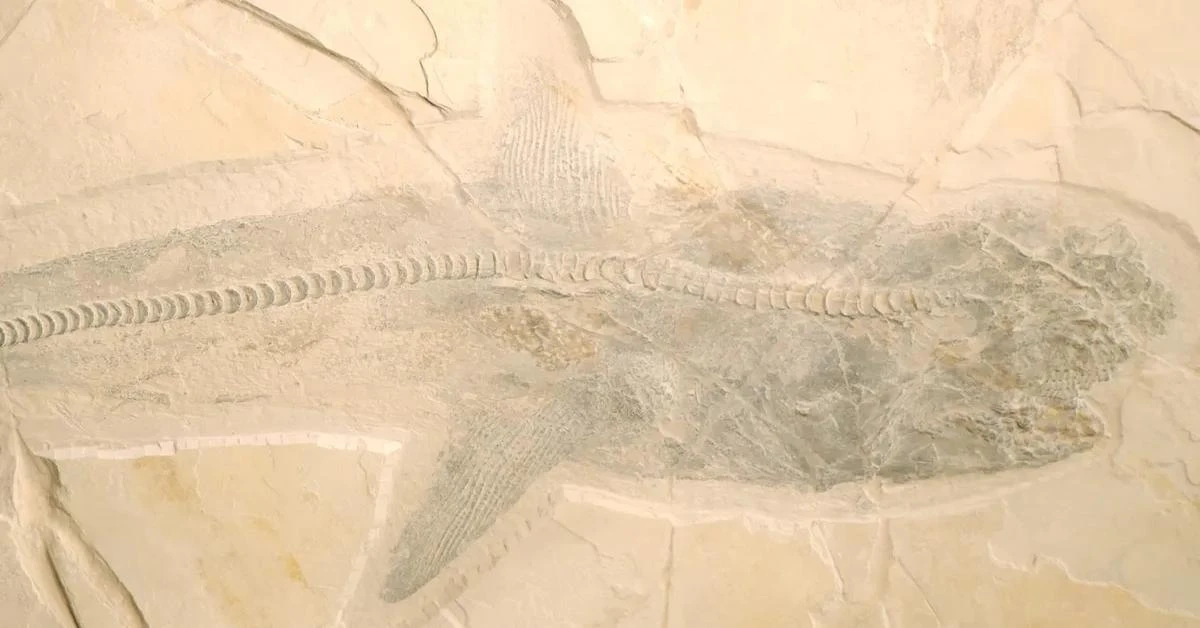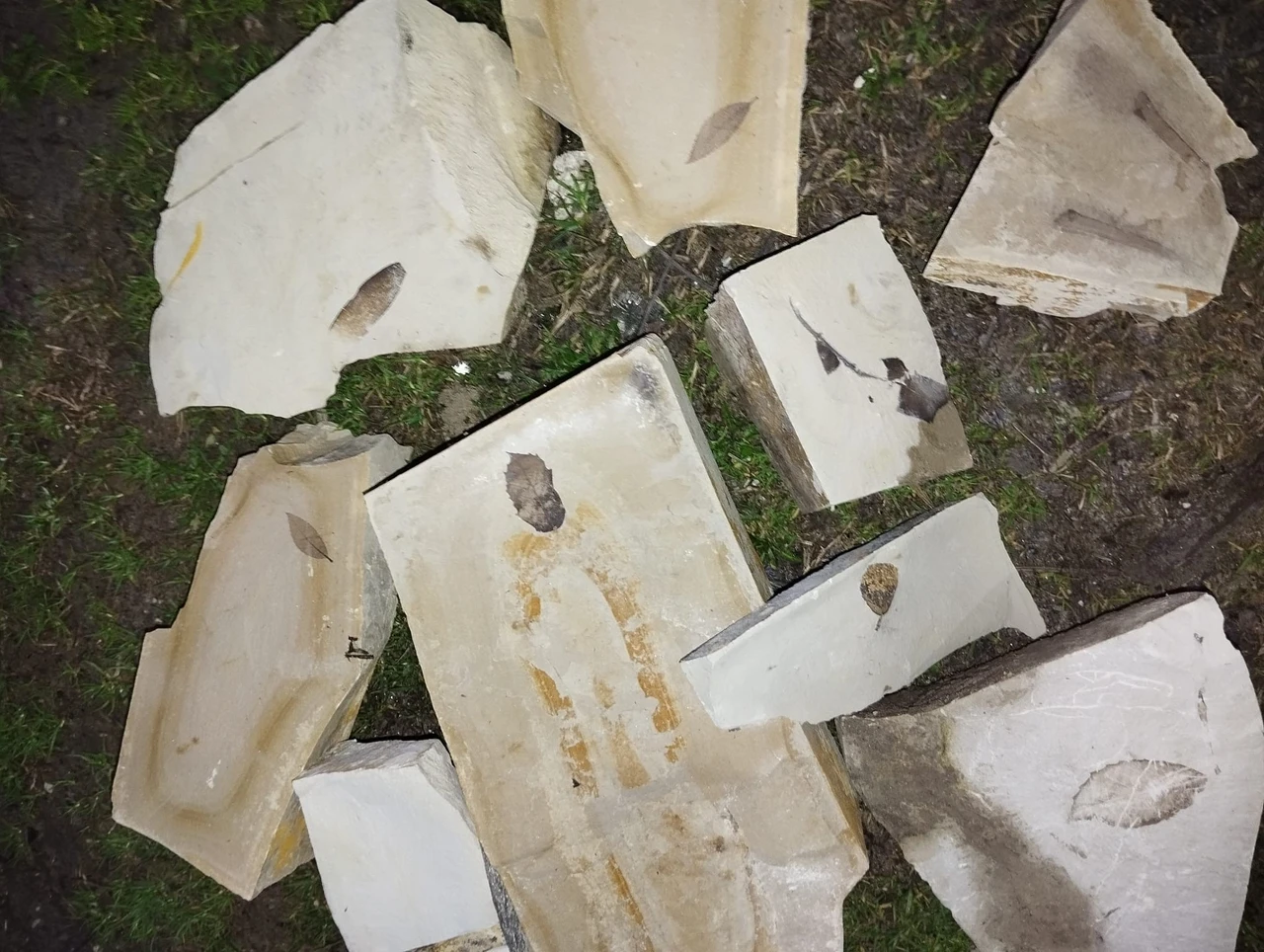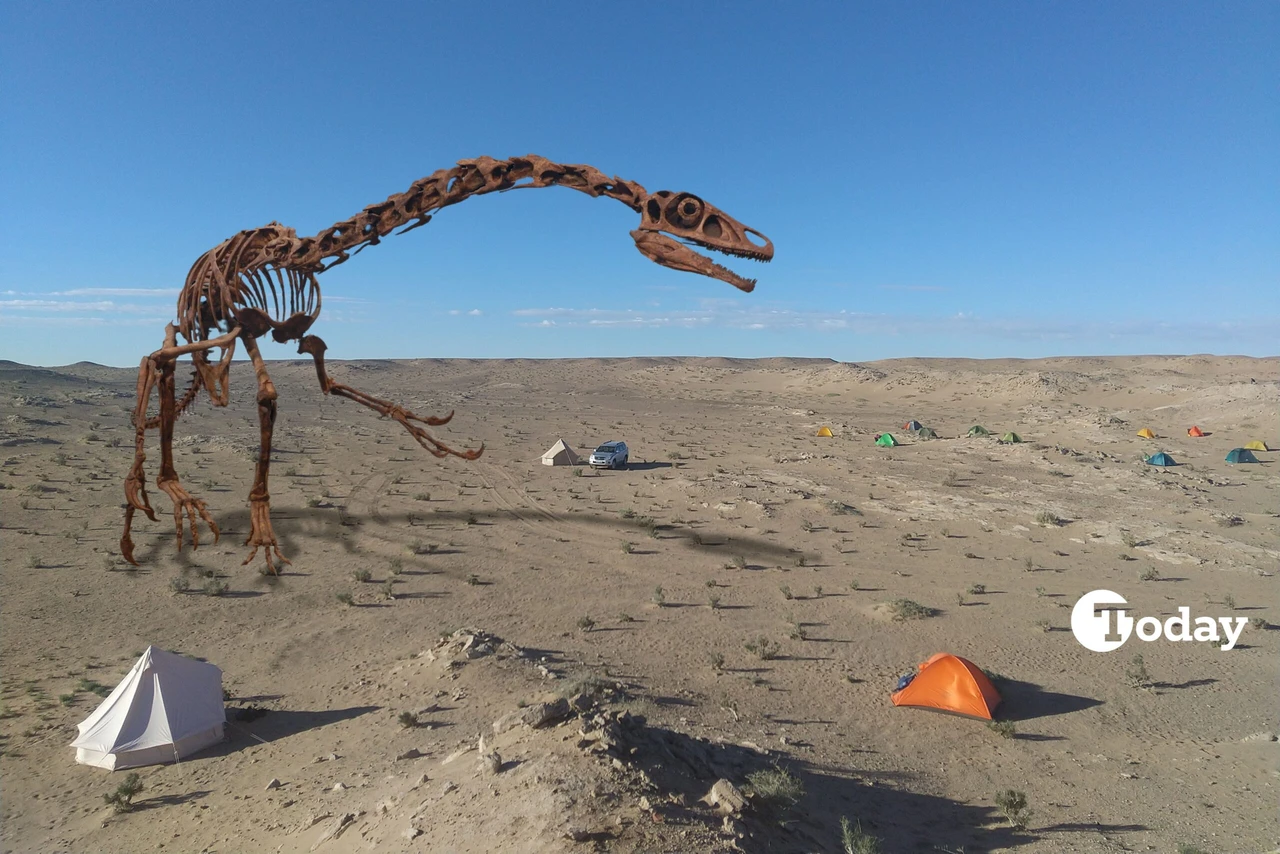New fossil discovery in Mexico reveals details about ancient shark Ptychodus

Recent excavations in Northeastern Mexico have unearthed well-preserved fossils of the Ptychodus shark, providing new insights into its 33-foot length, streamlined body, and diet of hard-shelled sea creatures
Recent excavations in Northeastern Mexico have unearthed remarkably complete fossils of the Ptychodus shark, revealing new details about this ancient relative of today’s great white shark.
This significant find, detailed in the latest issue of the Proceedings of the Royal Society B, provides a clearer picture of the shark that dominated the seas over 90 million years ago.
Historically, researchers knew Ptychodus from fossilized teeth and debated its appearance due to the scarcity of complete specimens. The recent discovery in limestone quarries in Nuevo Leon changes this narrative, showing a shark that stretched up to 33 feet long with a body built for open-water hunting.
“The discovery of complete Ptychodus specimens is really exciting because it solves one of the most striking enigmas in vertebrate paleontology,” said Romain Vullo, a researcher at Geosciences Rennes and the lead author of the study, in a discussion with Live Science.
These fossils reveal that Ptychodus boasted a streamlined body and massive teeth designed for crushing hard-shelled prey such as ammonites and sea turtles. This diet suggests that Ptychodus occupied a unique ecological niche, contrasting with the previously assumed diet of seabed-dwelling invertebrates.
Michael I. Coates, an evolutionary biologist at the University of Chicago, provided further insight: “Here we have it, with thorough analyses of where it sits in the shark family tree and a good stab at its ecomorphology—how it fits into marine ecosystems of the Late Cretaceous,” he told the Guardian.
The exceptional preservation of the fossils, due to their rapid burial in soft lime mud, has allowed for an unprecedented glimpse into the anatomy and lifestyle of Ptychodus. Charles Underwood, a paleontologist at Birbeck, University of London, emphasized the importance of these findings: “It’s almost the last jigsaw piece in putting together Cretaceous ecosystems.”
This discovery not only illuminates the physical characteristics and potential behaviors of one of the Cretaceous period’s most mysterious sharks but also emphasizes the vulnerability of large marine predators.
Patrick L. Jambura, a paleontologist at the University of Vienna, stressed the contemporary relevance of these ancient findings: “Ptychodus provides us with a mirror that shows us what will happen to large apex predators such as the white shark if we, as their main competitor, do not rethink our actions,” he said to the Guardian.
Source: Newsroom



